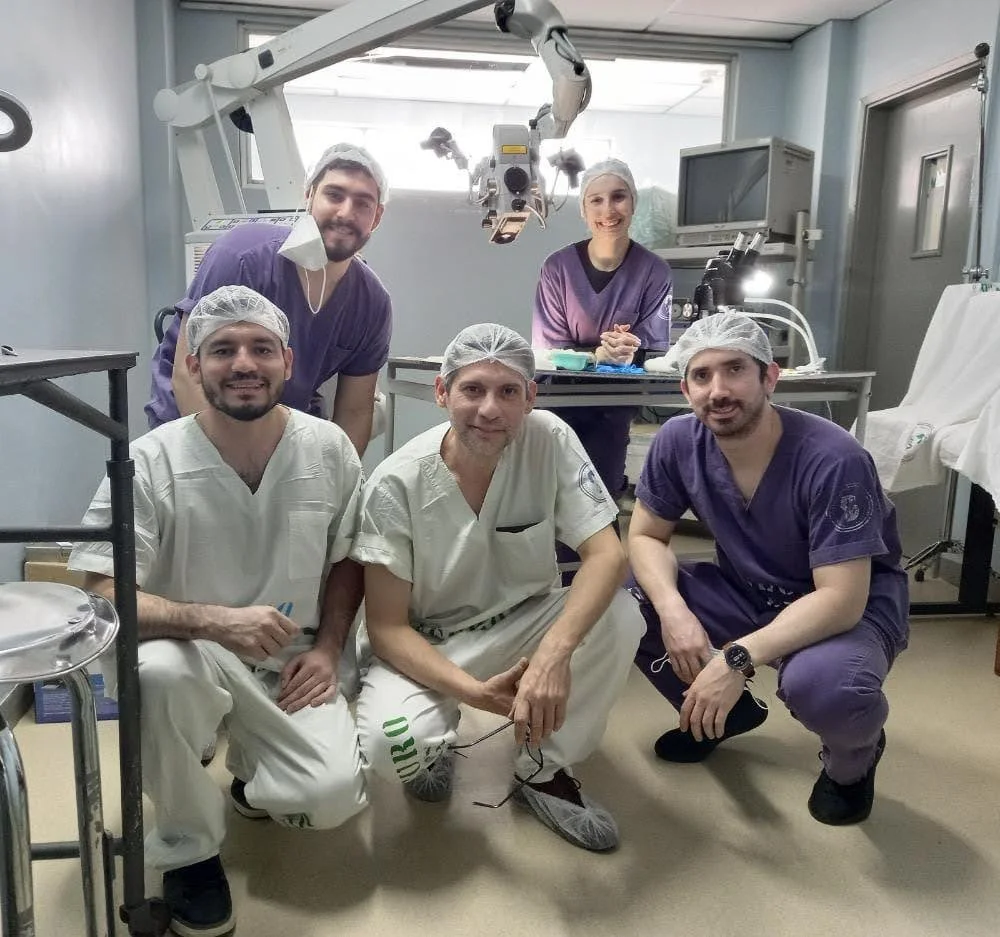Resuming our in-person partnership with the Oncological Institute of Eastern Bolivia this month, our main goal was to provide specialized training and fill essential surgical equipment and supply needs. But we also traveled to the Cancer Institute to share the burden, albeit for just one week, of the ups and downs of cancer care.
In today’s gospel, Mary and Martha are confronted with their brothers’ serious illness. Their fear, worry and desperation are what many patients and their families feel when they receive the diagnosis of a surgically treatable condition, but are unable to access the needed operation.
Read MoreFlorentino’s health was declining minute by minute. He was not expected to survive the night. Bolivian Dr. Susana Aviles and US Dr. Malcolm Bilimoria consulted and they agreed they would operate together as soon as Florentino could be prepped.
Read MoreThis week, we finally return to work in-person with our colleagues at the Cancer Institute of Eastern Bolivia. Our last visit was in 2019, and much has changed since then.
Read MoreToday, as Lent begins, you are invited to take time to read some of our stories – stories of patients in need of medical care they cannot access; stories of medical providers going to great lengths to change the health care realities in their communities; stories of hearts and lives transformed.
Read MoreEnsuring donated biomedical equipment remains in good working order requires access to spare parts and consumables, and biomedical engineers and technicians with the skills to provide ongoing maintenance and repairs. This was the impetus for a recent mission trip organized in partnership with the TriMedX Foundation.
Read MoreAnyone who has witnessed the devastating impact of a traumatic brain injury knows that an integrated approach is needed to care for patients and support their reintegration into society. On a November NNI trip to Hospital Santa Bárbara in Sucre, Bolivia, we expanded our focus to the entire spectrum of care for TBIs.
Read MoreWe began several years ago at the Hospital Santa Bárbara with extensive interviews and the creation of a baseline assessment of existing hospital services. This week, our vision for a multi-disciplinary neurotrauma initiative is finally taking shape.
Read MoreIn Bolivia’s public hospitals, head trauma from traffic accidents, falls, or violence represents a pressing healthcare burden. Head and spine injuries not only affect the long-term quality of life of the injured patient but of entire families and communities.
Read MoreAt the close of our gynecologic surgery mission trip in Sucre, Bolivia, US missioner, Dr. Erin Stevens, shares what motivates her to continue with this work.
Read MoreThe ICO team has a prophetic presence in Sucre and the surrounding area, living the realities of life with cancer. Our mission team is grateful to be among those learning from the patients, doctors, nurses, and administrators at the ICO this week.
Read MoreA five-women team departs this Saturday for Sucre, Bolivia, to work alongside OB-GYN surgeons at the Chuquisaca Cancer Institute (ICO). The primary goal of our visit is to advance training in laparoscopic surgical techniques for gynecologic pathologies.
Many trainees in developing countries don’t have access to a practice space for advanced techniques. This drives motivated doctors to move abroad for their educational advancement and contributes to a drain on the medical workforce in low-income countries.
Read MoreConcluding our week in Cliza, Executive Director Ann Rhomberg cited the book of John (1:5): “The light shines in the darkness. And the darkness has not overcome it.” We are indebted to all the health workers in Cliza, in Bolivia, and throughout the world, who “continue to shine the light of healing care,” despite any darkness around us.
Read More29-year-old Joselin lived for years with a benign but growing mass in her uterus. Pain from this issue had become debilitating, and her fertility was also threatened. Surgery was the only solution, but financial and logistical obstacles prevented Joselin from accessing care.
Read More














